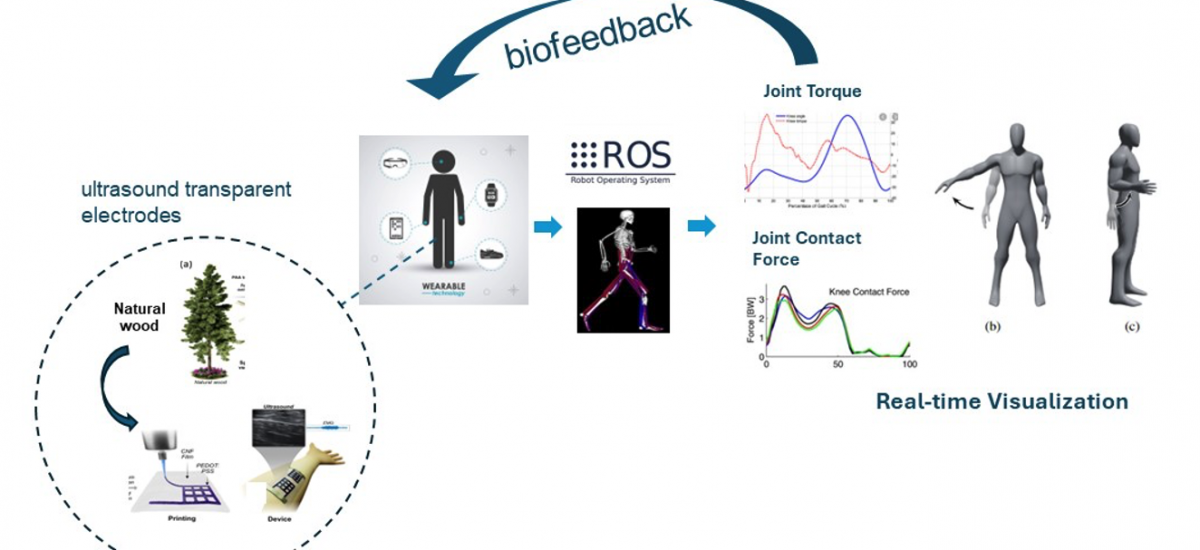
Digital Twins of Human Neuromusculoskeletal System: Challenges and Future Perspectives in Personalized Neurorehabilitation
Objective
The project aims to tackle several methodological and technical challenges encountered during the first phase of developing digital twins (DT) of the personalized human neuromusculoskeletal system: durable biomass sensor design, real-time modelling, and multiple sensor fusion. Overcoming the abovementioned bottlenecks will vastly improve the reliability and robustness of the DT framework. It can then be a clinical-friendly biofeedback neurorehabilitation platform based on a highly modularized and robust wearable sensor-fusion framework, including the innovative biomass-based ultrasound transparent electromyography electrodes.
Background
It is estimated that 15% of the world’s population lives with one or more disabling conditions. Impaired motor function is one of the major disabilities. Management of a complex disability currently largely relies on rehabilitation. In clinical practice, the supervision and the evaluation of a rehabilitation motion pattern remain a medical and engineering challenge due to the lack of biofeedback information about the effect of the rehabilitation motion on individual human biological tissues and structures. Digital twins (DT) is one of the most important concepts in digitalization, integrating all data, models, and other information that allows us to monitor the current states of a real system, e.g., a human musculoskeletal system in the current context. Among others, reliable and wearable sensor data fusion is critical in accomplishing the workflow of DT. The recent development of epidermal electronics offers a promising alternative. In particular, natural wood-derived nanocellulose shows promise in epidermal electronics for simultaneous dual signals collection due to biocompatibility, excellent mechanical properties, high water retention, and great potential for multi-functionalization.
Crossdisciplinary collaboration
This project brings expertise within biomechanical modelling, medical imaging, artificial intelligence and wood nanoscience, wood nanoengineering, and biomaterials design, involving researchers from the Department of Engineering Mechanics at KTH SCI and the Department of Fibre and Polymer Technology at KTH CBH.
Contacts

Yuanyuan Li
Assistant Professor at KTH, Former Co-PI: Digital twins of human neuromusculoskeletal system - A new paradigm of personalised medicin in neuro-rehabilitation, Digital Futures Faculty
yua@kth.se
Ruoli Wang
Assistant Professor at KTH, Former Co-PI: Digital twins of human neuromusculoskeletal system - A new paradigm of personalised medicin in neuro-rehabilitation, Digital Futures Faculty
+46 8 790 68 01ruoli@kth.se


